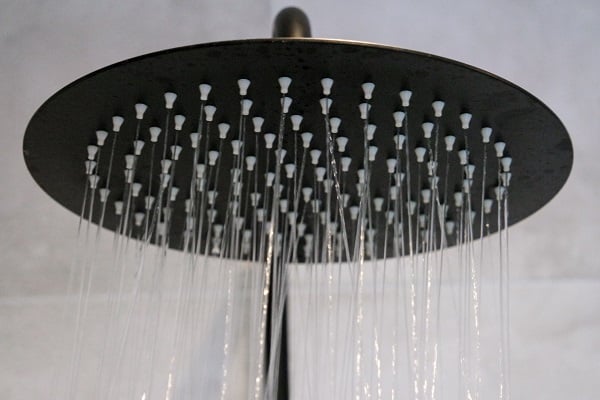Have you ever thought of turning the temperature down on your daily shower? While the idea might make you shiver, the practice of cold showers has ancient roots and is widely revered in many cultures for its numerous health benefits. This blog post will shed light on an often-overlooked aspect of this practice: its potential benefits to your mental health. From reducing stress to improving mood and beyond, you’ll explore how this simple change to your routine could have significant positive impacts on your mental well-being.
Contents
Understanding Cold Showers

Despite the apparent simplicity, cold showers are more than just lowering the temperature of your shower water. They involve a conscious decision to expose oneself to discomfort, thereby pushing mental and physical limits. It’s a practice often linked to resilience building and discipline, both critical aspects of mental health. A cold shower typically involves exposure to water at a temperature of less than 20°C (68°F), a sharp contrast to the average hot shower temperature of around 40°C (104°F).
The practice of cold showers traces back to ancient times. It was common in Roman times, as reflected in their bathhouse designs. It is also embedded in various cultural and spiritual practices worldwide. For example, in Shinto, a Japanese religion, participants engage in a practice known as Misogi, which involves ritual purification through cold water. Despite these deep historical roots, many misconceptions still surround cold showers, such as them causing illness or only being suitable for the physically robust.
Mental Health Benefits Of Cold Showers
Here are the mental health benefits of regularly taking cold showers:
Cold Showers And Stress Reduction

In a world where stress seems to be a constant companion, finding simple yet effective ways to manage it is crucial. Cold showers can be a powerful tool in this quest. When you immerse your body in cold water, your stress response system—often referred to as “fight or flight”—is activated. This exposure can lead to a form of conditioning where over time, the body becomes better equipped to manage stressful situations. It’s like exercising a muscle; the more it’s used, the stronger it becomes.
Interestingly, a study found that cold showers could reduce cortisol levels—the body’s primary stress hormone. By reducing the amount of cortisol produced in response to stress, you can better manage your stress levels, promoting more balanced emotional well-being. Incorporating cold showers into a regular routine could, therefore, offer an effective, accessible means of stress management, contributing to an improved mental health outlook.
Cold Showers And Mood Enhancement

Along with stress reduction, cold showers may also provide a notable mood boost. The reason lies again with the release of endorphins. As you plunge into the cold water, your body’s natural response is to pump out these “feel-good” chemicals, which can lead to an immediate and invigorating lift in mood. This effect can be so strong that some people describe experiencing a “high” similar to the “runner’s high” often reported by athletes.
In addition, research suggests that cold showers might be a potential treatment for depression due to the intense stimulation of the dopaminergic transmission in the mesocorticolimbic and nigrostriatal pathway. These pathways are known for their role in reward processing, motivation, and mood regulation. Therefore, regular cold showers could potentially help manage and improve mood, offering a simple, free, and side-effect-free addition to traditional treatments.
Cold Showers And Mental Resilience

While the cold blast of water might be uncomfortable initially, it’s this very discomfort that can help build mental resilience over time. Mental resilience refers to your ability to effectively cope with stress or adversity and bounce back from challenges. Each time you step into a cold shower, you’re voluntarily placing yourself in a stressful situation, and over time, this can help improve your ability to cope with other stressful scenarios in life.
Moreover, cold showers can be viewed as a form of mental conditioning. When you consistently expose yourself to discomfort and learn to navigate through it, you strengthen your mental resolve. Just as physical exercise strengthens your body, enduring the uncomfortable cold can fortify your minds, making you more robust and better prepared to handle life’s inevitable hardships and challenges.
Cold Showers And Sleep Quality

The quality of sleep you get has a profound effect on your mental health. Poor sleep or insomnia can exacerbate mental health conditions like anxiety and depression. Interestingly, cold showers can play a part in improving your sleep quality. Taking a cold shower approximately an hour before bed can help trigger the body’s natural sleep mechanisms. The cold water cools your body, and as your body works to restore your normal temperature, you might find yourself feeling sleepy.
A small study found that individuals who soaked in a bath of 20-22°C (68-71.6°F) water for 10 minutes before bedtime reported improved sleep quality. Although a bath isn’t the same as a shower, the principle of cold water exposure remains the same. This could be particularly beneficial for those who struggle with insomnia or poor sleep, ultimately contributing to overall better mental health.
Cold Showers And Anxiety

Anxiety is a widespread issue in today’s fast-paced, high-pressure society. Managing it effectively is essential for maintaining good mental health. Emerging research suggests that cold showers could be a beneficial tool for those struggling with anxiety. As the body responds to the shock of the cold water, it can lead to a form of hardening. This means that regular cold showers can help the nervous system become more resilient to the effects of stress, which can help manage anxiety symptoms.
Additionally, the act of taking a cold shower encourages mindfulness—a psychological process where you focus on your sensations in the present moment. Mindfulness has been shown to be an effective technique for managing anxiety. When you’re in a cold shower, it’s hard to focus on anything other than the physical sensations you’re experiencing. Therefore, regular cold showers may potentially provide dual benefits for anxiety—helping to build up resistance to stress through physiological hardening and promoting mindfulness.
Combining Cold Showers With Other Healthy Habits

While the benefits of cold showers for mental health are significant, it’s essential to remember that they are not a stand-alone solution. Incorporating cold showers into a holistic approach to mental well-being that includes balanced nutrition, regular exercise, sufficient sleep, and mindfulness practices can compound the benefits and provide more sustainable results. These combined lifestyle adjustments can work together to boost mood, reduce stress, and promote overall mental resilience.
For instance, combining cold showers with mindfulness or meditation could enhance the mental benefits of both practices. By paying mindful attention to the sensation of cold on your skin and your body’s responses, you can deepen your mindfulness practice and further reduce stress and anxiety. Similarly, coupling cold showers with regular physical exercise could increase endorphin production, contributing to enhanced mood and stress reduction.
Cautions And Considerations For Cold Showers

While there are many potential benefits of cold showers for mental health, it’s important to approach them with caution. Cold showers may not be suitable for everyone. People with certain health conditions, such as Raynaud’s disease, asthma, or heart conditions, should seek medical advice before attempting cold showers due to potential risks. Moreover, starting with too intense a cold shower can be a shock to the system, so it’s generally advisable to start gradually, possibly by ending a regular shower with a minute of cold water, and build up from there.
Additionally, while the potential benefits to mental health are encouraging, cold showers should not be seen as a substitute for professional mental health treatment. If you’re experiencing symptoms of mental health issues such as depression or anxiety, it’s crucial to seek help from a healthcare professional. Cold showers can be an additional tool in your mental health toolkit but should be used in conjunction with traditional treatments and under the advice of healthcare providers.
Start Reaping The Mental Health Benefits Of Cold Showers Today!
Cold showers might initially seem daunting, but as you’ve explored, they offer numerous potential benefits for mental health, ranging from stress reduction to mood enhancement and even potential relief from depression symptoms. Integrating cold showers into a broader routine of healthy habits could prove to be a powerful way to bolster mental well-being. However, it’s important to approach them mindfully, considering your own health circumstances and seeking professional advice as needed. Remember, every small step towards improving mental health counts. Whether you start with just the last 30 seconds of your shower or jump straight into the deep end, each drop of cold water is a step in the direction of better mental health.


